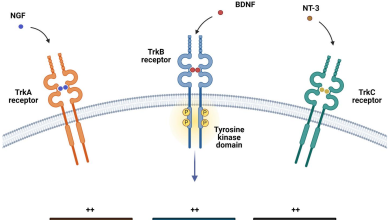Separation Anxiety: A Closer Look at Mental Health
Why Is Separation Anxiety Important for Mental Health?

Separation anxiety refers to a psychological condition characterized by feelings of intense distress and anxiety when a person is separated from someone they are emotionally attached to or from a familiar environment. It is commonly associated with children when they are separated from their primary caregivers, such as parents or guardians. However, separation anxiety can also affect adults, manifesting in various ways.
Is it normal for adults to have separation anxiety?
Experiencing some degree of separation anxiety in adulthood is normal and can be a common emotional response to temporary separations from loved ones or significant life changes. It’s natural to feel a sense of unease when facing unfamiliar situations or being apart from those we care about. However, the degree and frequency of separation anxiety vary widely among individuals.
What are the signs of separation anxiety in adults?
Separation anxiety in adults can manifest in various emotional, cognitive, and behavioral signs. Here are some common signs of Separation Distress in adults:
- Excessive Worry: Adults with Emotional Separation might constantly worry about the well-being of their loved ones when they are not together.
- Fear of Being Alone: They may experience an intense fear of being alone, even in familiar environments. They might go to great lengths to avoid being by themselves.
- Reluctance to Leave Home: Adults with Attachment Anxiety might find it challenging to leave their home, as it means being away from their comfort zone and the people they are attached to.
- Avoidance of Separation Triggers: They may avoid situations that trigger Dependency Anxiety, such as social events, travel, or any situation where they have to be apart from their loved ones.
- Physical Symptoms: Anxiety associated with separation can lead to physical symptoms like nausea, headaches, stomachaches, sweating, trembling, or heart palpitations.
- Excessive Reassurance-Seeking: They might seek constant reassurance from their loved ones about their safety and well-being.
If you or someone you know is experiencing these signs, seeking professional help from an “Online counsellor” or psychologist can provide guidance and strategies to manage Isolation Concerns effectively.
What causes separation anxiety in adults?
For those who have suffered from separation anxiety in adulthood, “Online counselling” offers effective guidance to help handle and manage these challenging emotions. among the possible root causes and contributing elements are:
- Early Attachment Patterns: The quality of attachment formed during childhood can influence adult Farewell Apprehension. Those who had inconsistent or insecure attachments with primary caregivers might be more prone to Isolation Concerns.
- Traumatic Separation: Past experiences of sudden or traumatic separations, such as the loss of a loved one, a divorce, or a significant life change, can trigger Parting Unease in adulthood.
- Life Transitions: Major life transitions, such as moving to a new city, starting a new job, or significant changes in relationships, can provoke feelings of uncertainty and trigger Detachment Worries.
- Relationship Dynamics: Unresolved issues or dynamics within relationships can contribute to Separation Distress. Dependency or enmeshment in relationships might lead to distress when apart from the other person.
- Dependency: A history of relying heavily on others for emotional support, decision-making, or daily tasks can lead to increased vulnerability to Emotional Separation.
- Personality Traits: Individuals with certain personality traits, such as high neuroticism or anxiety sensitivity, might be more prone to experiencing Dependency Anxiety.
- Grief and Loss: Grief over the loss of a loved one or a significant relationship can intensify feelings of anxiety when faced with further separations.
It’s important to recognize that Isolation Concern is a complex and multi-faceted issue. Identifying the underlying causes through self-awareness.
The Impact of Separation Anxiety on Adult Mental Health
The impact of separation anxiety on adult mental health can be profound, affecting various aspects of well-being. Here are some ways in which Farewell Apprehension can influence mental health:
- Heightened Anxiety: Individuals with separation anxiety experience intense and persistent worry, leading to heightened levels of anxiety. This constant state of distress can interfere with daily functioning and contribute to generalized anxiety disorder.
- Depression: The distress and isolation associated with Dependency Anxiety can lead to feelings of sadness and hopelessness, potentially triggering or exacerbating depressive symptoms.
- Social Isolation: Avoidance of situations that trigger Emotional Separation might lead to social withdrawal and isolation, increasing feelings of loneliness and exacerbating mental health challenges.
- Relationship Strain: Separation Distress can strain relationships as partners, family, and friends may find it challenging to navigate the individual’s emotional dependence and avoidance behaviors.
- Occupational Impact: Difficulties concentrating due to preoccupation with Isolation Concern can impact work performance, potentially leading to job-related stress and decreased productivity.
- Physical Symptoms: The stress associated with Attachment Anxiety can lead to physical symptoms such as headaches, gastrointestinal issues, and sleep disturbances.
- Panic Attacks: Severe Attachment Anxiety can trigger panic attacks, characterized by intense fear and physical sensations such as chest pain, heart palpitations, and shortness of breath.
In conclusion, experiencing separation anxiety to some degree is a normal part of the human experience, especially when faced with temporary separations or significant life changes. It reflects our emotional attachments and the value we place on relationships.








